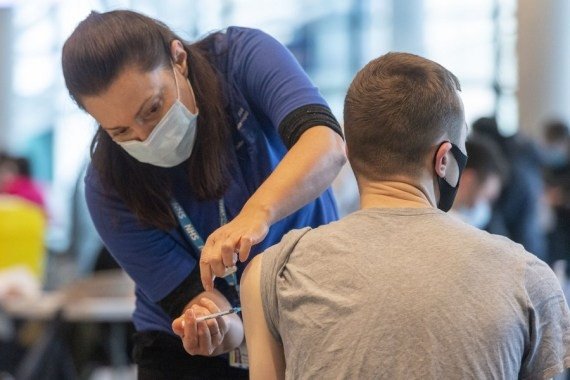Health
How vulnerable patients can enhance Covid booster response?

London, June 28 : A two-week break from immune-suppressing drugs after a Covid-19 booster vaccination can double antibody response among millions of clinically vulnerable patients, according to a study published in The Lancet Respiratory Medicine.
Methotrexate is the most commonly used immune-suppressing drug used for inflammatory conditions such as rheumatoid arthritis, and skin conditions such as psoriasis.
While methotrexate is effective at controlling these conditions and has emerged as first line therapy for many illnesses, it reduces the body's ability to fight infections and the ability to generate robust response to flu and pneumonia vaccines, including those against Covid-19.
Experts at the University of Nottingham working in partnership with several universities and NHS hospitals, recruited 560 patients for a major clinical trial. But it was stopped early because the results were so clear-cut in the first 254 patients.
During the trial 127 participants were asked to suspend methotrexate use for two weeks and 127 to continue using it as usual.
After 4 weeks and 12 weeks, the spike-antibody level was more than two-fold higher in the group where methotrexate was suspended for two-weeks following vaccination, compared to the group who continued use.
Although there was a worsening of disease control at week 4 in the suspend group, that had normalised by week 12. There was no impact on quality of life or general health, the results showed.
"We are extremely pleased with the initial results of the trial. There was a doubling of the antibody response in patients who held off on taking methotrexate for two weeks. The improvement in antibody response was maintained over a 3-month period. There was a short-term increase in risk of flare-up of inflammatory conditions. However, most could be self-managed," said Chief Investigator, Professor Abhishek at Nottingham.
"Implementing these results could vastly improve the protection provided by boosters against Covid-19 for millions of people living with these conditions. Covid-19 has left them vulnerable to serious illness, whilst still having to live with the painful and troubling effects of their conditions. We hope this evidence is the next step in helping them with their lives going forward," he added.



































